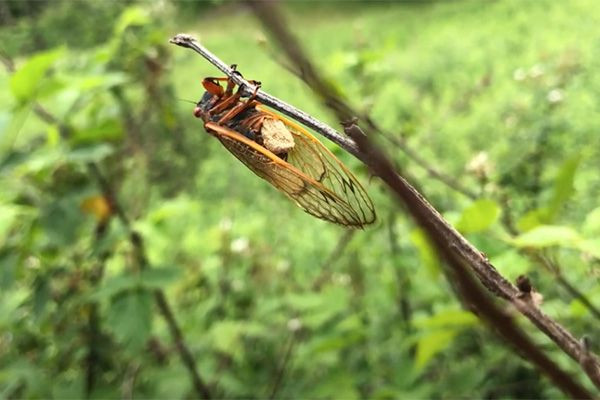17-Year-Cicada Swarm: Brood X Won't Bite But May Hurt Your Ears
KEY POINTS
- 17-year-cicadas are expected to emerge in the coming weeks
- The noise they make may be harmful to the ears
- Those who would like to witness the event should use ear protection
The long-awaited 17-year cicadas are expected to emerge from the ground in the coming weeks and spread across the eastern United States. Although the insects are not considered dangerous, the sound they make can be bad for the ears.
The emergence of 17-year cicadas, called Brood X, from the ground is possibly one of the most fascinating events to observe in nature. When this happens, billions of periodical cicadas burst out from the ground with the sole mission of mating and creating the next brood, the Scientific American said.
Adult cicadas are often mistaken for locusts. Unlike locusts, adult cicadas only have sucking mouthparts and they don't chew. So even though it may seem quite intimidating to see the insects swarming the surroundings in huge numbers, cicadas actually do not bite or sting people, Chicago Botanic Garden said.
Cicadas' noise can damage your ears
There is one annoying, at times unhealthy, characteristic that people in the affected areas will have to prepare for: their noise.
When the insects emerge from the ground, they make loud noises, which could even reach about 100 decibels. This is close to the sound one hears while standing three feet away from a chainsaw, according to Smithsonian Mag.
Other sounds that reach 100 decibels include the sound of a car horn at 16 feet and an approaching subway train, the Centers for Disease Control and Prevention (CDC) said. At this level, people can suffer hearing loss after 15 minutes of repeated or routine exposure.
"Well, no other insect of this type really reaches that decibel level," Michael Raupp, entomologist and professor emeritus at the University of Maryland, told ABC7 News.
By comparison, the noise of crickets, which are also known for the loud sounds they make, only reaches 15 decibels. This is because cicadas actually have an organ that allows them to essentially amplify the sound they make, Raupp explained. And with billions of them around, it's not surprising that they can make such a loud sound.
The CDC says how noise affects one's hearing depends on the intensity of the sound and how long it lasts. So it is better to avoid "noisy situations." But those who can't, or in this case those who would still like to witness the unique event, should use protection such as earplugs or earmuffs.

© Copyright IBTimes 2025. All rights reserved.






















